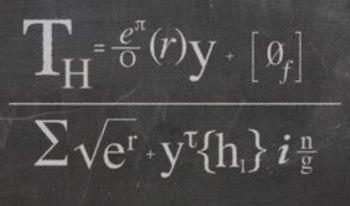Equanimity and Mindful Resistance
In the wake of recent events, principally the tragedy at Charlottesville, my patients have been wanting to discuss the situation and the profound distress such events have triggered in them…in all of us. They have experienced a profound loss of emotional equanimity. Emotions understandably range from anger, fear, sadness, despair, helplessness, hopelessness, and so on. These reactions are perhaps most pronounced by those who have personally experienced trauma at the hands of a dominant male figure and thus see in Trump as his ilk, similar qualities and behaviors that trigger deep emotional responses. But many others too, feel deep fear and concern for what appears to be an assault on the long held values and democratic systems of governance that perhaps we all took for granted. The evoked emotions can create or exacerbate symptoms of anxiety, depression and insomnia. They can also fuel the tendency to overeat as so hysterically portrayed by Tina Fey on a recent Saturday Night Live skit. These emotions can also serve to compel overconsumption of alcohol, drugs, binge shopping and so on, all in the desperate attempt to subdue the uncomfortable feelings aroused by recent circumstances. It can also lead to obsessive following of social media and TV news, further escalating emotional tension. One can easily fall into the trap of righteous indignation in which one can castigate the views of others whose beliefs and opinions differ from their own which can create disharmony among friends, neighbors and families leading to the polarization of communities and indeed our nation.
Equanimity is one of the four “Brahmavaharas” or boundless qualities that students of the Dharma are instructed to cultivate and requires that we be mindful of the tendency to judge, compare, and engage in reactive emotions. Equanimity requires that we maintain presence. We cannot lose our minds. We must see things as they are. Teachers in all great religions, though employing different language, also encouraged the acquisition of similar qualities. Jesus taught the importance of loving one’s neighbor and turning the other cheek. Hindu leaders such as Ghandi exhorted “Ahimsa” or non-violence in dealing with oppressive regimes.
It is our task to try to understand the skills, capacities, and lessons that difficult times require and bestow. These are such difficult times. My guess is that most reading this blog did not vote for Trump, nor expected his ascendancy to power. And so understandably, fear, despair, helplessness, hopelessness, shock, sadness, and a whole array of emotions are likely to arise. This is normal. However, to respond to these understandable emotions in a blind and reactive manner will only further the cycle of karma.
John Lennon once said lyrically, “You say you want a revolution, well you know, you better free your mind instead”. He realized that without internal liberation, any endeavor to create outer liberation will be futile or even dangerous.
So, what can we do?
The following are some steps that one can contemplate following in order to help maintain equanimity in such difficult times. And if one chooses to engage in political or social resistance, to be able to do so in a more mindful manner. For to engage in resistance born of rage and hate, will only sew further karmic seeds and continue the cycle of suffering for all.
- Redouble commitment to the dharma or other teachings of personal liberation.
- Commit to sit (meditation, prayer, contemplation).
- Don’t try to convince others of your views. Lead through example.
- Practice deep listening. Pay deep attention to the suffering of others.
- Refrain from opposing hateful speech with hateful speech. Practice what the Buddha referred to as “Right Speech”.
- Limit toxic levels of media exposure according to personal tolerances. But don’t stick your head in the sand.
- Acknowledge the feelings that emerge. Build “emotional literacy” and label the feelings. For example, acknowledge feelings of helplessness by saying inwardly, “There is helplessness.” Don’t say, “Trump is such an asshole.” Rather indicate the feelings his words and actions provoke in you. Meet any reactive emotion that arises with mindful attention.
- Direct your energies to resist employing skillful means. Write to representatives, attend rallies, join local resistance organizations, provide money or time to national resistance organizations. Read the writings of those who have led such peaceful resistance movements (e.g., Tich Nhat Han, Martin Luther King Jr., Mahatma Gandhi, Dalai Lhama)
- Practice loving kindness. Direct thoughts of loving-kindness towards Trump, Bannon and the whole cabal. Wish that they experience growth and wisdom. They are in great need of kindness for they are in great pain.
- Recognize this truth: Great suffering is always necessary to provoke the next level of growth. And so I believe that if we survive this, we will enjoy a period of unprecedented spiritual and sociocultural growth. Signs of this are already abundant. But in the meanwhile, yes…there will be great pain and suffering. Unfortunately, the calamities of 9/11 and the 2008 recession were not sufficient to awaken us from our greed, attachments, consumerism, materialism, and reactive emotional responding in the face of threats to economic and national security. Trump is no less the Buddha than Siddhartha Gautama Shakyamuni Buddha, who can help us take inventory of our folly and lead us to a more enduring understanding of those transcendent qualities that are critical to achieve if we are to survive as a species.
- Resist forces of oppression and social injustice. Do not resist the feeling such forces arouse in you. “See to your own mind” and stay awake to the emotions that arise. Don’t go blind!






